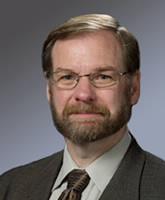
Photonics has become the new buzz word in technology circles with the promise it offers for environmentally clean-power systems, medical science and a number of nuclear science applications.
Photonics is the science of light generation, detection, and manipulation. Put simply a photon is the fundamental particle of light.
Potential applications are numerous and include nuclear materials management, medical radiography and radiology, non-destructive, isotope-specific imaging, including
optimising cancer treatment.
At X-ray energies, these extremely compact sources rival the output of the world’s largest synchrotrons: above 2 MeV, the peak brilliance of compact laser-Compton sources can exceed that of the world’s largest synchrotrons by more than 15 orders of magnitude.
Subsequently, they surpass the flux of the highest performance medical sources and are enabling to new techniques that may significantly reduce doses to the patient during imaging procedures and/or increase the efficacy of radiation treatments for cancer.
ANSTO welcomes Dr. Christopher Barty, who will discuss the potential application of photonics in the world of nuclear science and technology.
Dr Barty is the Chief Technology Officer for the National Ignition Facility and Photon Science Directorate at the Lawrence Livermore National Laboratory.
Details:
Title: Laser-Compton Light Sources and the Dawn of Nuclear Photonics and Table-top Synchrotron Science
Lecturer: Dr. Christopher Barty, Chief Technology Officer, National Ignition Facility, Lawrence Livermore National Laboratory, USA
Date: Friday 29 April at 10.30am
Venue: AINSE Theatre
Cost: Free
About the speaker:
Dr. Christopher P. J. Barty is the Chief Technology Officer for the National Ignition Facility and Photon Science Directorate at the Lawrence Livermore National Laboratory (LLNL).
At LLNL, he has led efforts to develop kJ-class ultrahigh intensity lasers to probe nuclear fusion at the National Ignition Facility and has invented and developed new mono-energetic gamma-ray technologies that enable isotope-specific material detection, assay and imaging. His academic background includes B.S. degrees with honors in Chemistry, Physics and Chemical Engineering from North Carolina State University and an M.S and Ph.D. in Applied Physics from Stanford University.
Dr. Barty is a Fellow of the Optical Society of America (OSA), a Fellow of Society of Photo-optical Instrumentation Engineers (SPIE), a Fellow of the American Physical Society (APS), a Senior Member of Institute of Electrical and Electronics Engineers (IEEE) and co-chair of the International Committee on Ultrahigh Intensity Lasers (ICUIL).
He is the 2016 recipient of the SPIE Harold E. Egerton Award for his work on ultrafast, high intensity lasers and related time-resolved x-ray and gamma-ray science conducted with them.
